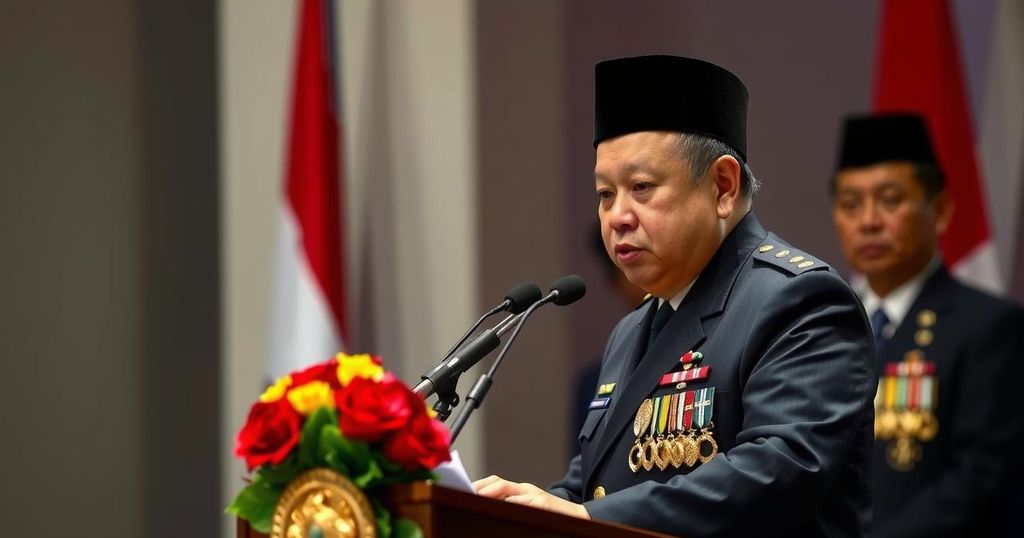Prabowo Subianto was sworn in as Indonesia’s eighth President on October 20, 2024. His victory follows a contentious political history with former rival Joko Widodo, who supported him in the election. The inauguration drew international attention, highlighting Indonesia’s significance as a major Muslim-majority country. However, uncertainties about Mr. Subianto’s governance approach and commitment to substantive policy change persist.
On October 20, 2024, Prabowo Subianto was officially sworn in as the eighth President of Indonesia, the largest Muslim-majority country in the world. This significant occasion marked the culmination of his journey from an ex-general accused of human rights violations during Indonesia’s military era to the Presidential palace. Following the oath taken on the Quran, Mr. Subianto was celebrated in Jakarta by thousands of supporters, accompanied by dignitaries from over 40 countries, including influential leaders from the United States, France, and China. Having been a longstanding opponent of the highly popular Joko Widodo, Mr. Subianto had previously run against him twice in presidential elections held in 2014 and 2019, both times refusing to accept defeat. However, post-election, President Widodo appointed Mr. Subianto as Defense Minister, leading to a political alliance that would see Mr. Subianto emerge as the successor in the recent election. Mr. Subianto, who secured a landslide victory in February’s election, promised continuity of Mr. Widodo’s policies, including development projects aimed at bolstering the domestic economy. He was inaugurated alongside his vice president, Gibran Rakabuming Raka, the 37-year-old son of Mr. Widodo. This partnership has drawn scrutiny as it marks a rare endorsement from a sitting president for a successor of opposing political affiliations. Despite the optimistic outlook of his ascendancy, uncertainties loom over how Mr. Subianto will govern the nation, particularly given that his campaign offered limited concrete policy proposals beyond those of his predecessor. Coming from one of Indonesia’s wealthiest families, Mr. Subianto represents a contrasting political figure to Mr. Widodo, who has a more humble background and is known for connecting with the working-class populace. In terms of governance challenges, President Subianto will handle the complexities of leading a vast and diverse economy amid fluctuating global economic conditions and rising geopolitical tensions in Asia. His expansive influence and connections will be critical as Indonesia navigates this precarious landscape in the coming years.
Prabowo Subianto’s inauguration as President of Indonesia is deeply rooted in the country’s complex political history, marked by military rule and human rights issues. His background as a former military officer and special forces commander has shaped both his image and his political trajectory. His prior accusations of human rights abuses, particularly regarding the abduction of activists during the late 1990s, color his legacy and impact perceptions of his leadership. The recent elections highlight the shifting dynamics in Indonesia’s political landscape, particularly the alliance formed with former rival President Joko Widodo, and reflect the broader socio-economic challenges that the country’s leadership must address.
In summary, Prabowo Subianto’s inauguration as Indonesia’s President signals a notable shift in leadership, with intentions to maintain the policies established by his predecessor, Joko Widodo. While he has garnered significant support and recognition, his ability to navigate the pressing challenges of governance in a diverse and economically vital nation remains to be seen. The political partnership with Mr. Widodo’s administration may provide a framework for stability, but the historical undercurrents of his military past and the expectations for progress will undoubtedly shape his presidency moving forward.
Original Source: www.thehindu.com






